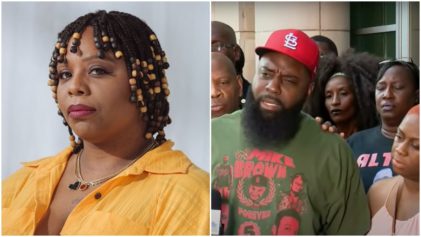President Obama jumped into the brewing debate about the conduct of America’s police force with more than a speech, announcing that he will ask Congress for $75 million over the next three years to subsidize the purchase of up to 50,000 body cameras to outfit the nation’s police—equipment that has been sought by civil rights advocates and police officials alike in the wake of so many controversial police killings in recent months.
In addition to the body cameras, the White House also announced that the federal government would more closely monitor the distribution of military-grade weapons and equipment to local police forces—another issue that drew increased scrutiny after many observers accused the Ferguson police of inciting rioters with its tanks and riot gear.
The president is also drafting an executive order to create a Task Force on 21st Century Policing, chaired by Philadelphia Police Commissioner Charles H. Ramsey, who is African-American, and Laurie Robinson, professor at George Mason University and former Assistant Attorney General for DOJ’s Office of Justice Programs, who is white. The task force will have 90 days to study ways to promote effective crime reduction while building public trust and prepare a report with recommendations.
This is the most concrete action on the issue of police conduct taken thus far by Obama, whose contribution to the brewing controversy has been mainly speeches in which he tries to balance his allegiance to law enforcement with his feelings about African-Americans being killed and brutalized. His attempts to walk that line usually wind up with him being attacked by both sides for not taking a stranger stance on their behalf.
The $75 million for the body cameras is part of an overall $263 million request to Congress that includes money for training of law enforcement officers and more resources to reform police departments. The federal government would provide a 50 percent match to states/localities who purchase body cameras and requisite storage, with the money projected to provide as many as 50,000 body cameras.
The White House announced the measures as the president was meeting with civil rights leaders to discuss mistrust of police in communities of color.
The national push for body cameras is one of the biggest developments to come out of explosive police-involved shootings such as the killing of Michael Brown in Ferguson. Just last month, the Los Angeles Police Department announced that it would be teaming up with Taser to provide body cameras for each officer.
In Rialto, California, when the entire police force was outfitted with small body-mounted cameras, in the first year the use of force by officers declined 60 percent, and citizen complaints against police fell by 88 percent. Now cities ranging from Washington, D.C., to New York City are discussing body cameras, with New York announcing that 60 officers will be equipped with them in a pilot program.
More than 150,000 people have gone online to sign a White House petition urging President Obama to “create a law” that would force all police to wear body cameras.


